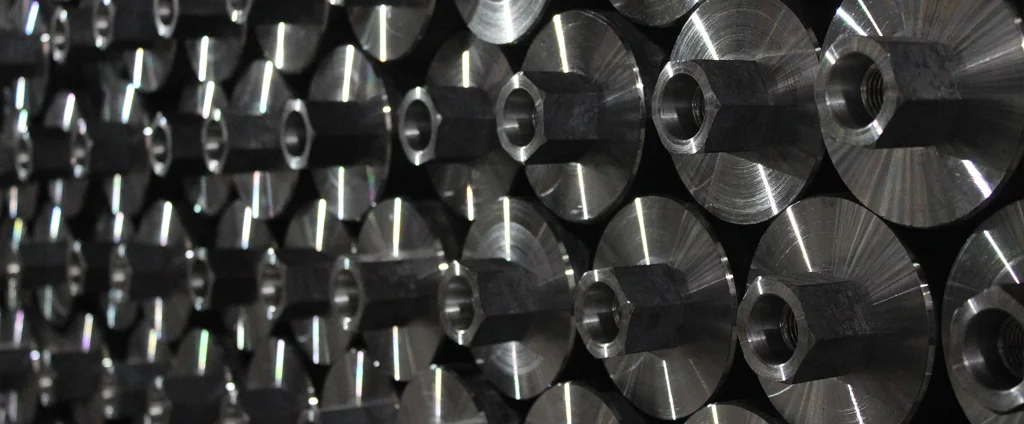SAE/AISI 1541 Carbon Steel (UNS G15410)

SAE/AISI 1541 is a medium-carbon steel alloy valued for its high strength, good toughness, and excellent machinability. Commonly used in automotive and heavy equipment industries, this alloy offers reliable performance in applications requiring durability and moderate wear resistance.
| Chemical Composition | ||
|---|---|---|
| Element | Min | Max |
| Iron | 97.82% | 98.29% |
| Carbon | 0.36% | 0.44% |
| Manganese | 1.35% | 1.65% |
| Phosphorous | —— | 0.04% |
| Sulfur | —— | 0.05% |
The following table provides a list of SAE/AISI 1541 properties in both SI and US customary/Imperial units.
Click on the button to switch between Metric and Imperial units.
| Physical Properties | Metric |
|---|---|
| Density | 7850 kg/m3 |
| Mechanical Properties | Metric |
| Tensile Strength (Ultimate) | ≥ 648 MPa |
| Tensile Strength (Yield) | ≥ 552 MPa |
| Young’s Modulus (E) | 190 - 210 GPa |
| Bulk Modulus (K) | 140 GPa |
| Shear Modulus (G) | 80 GPa |
| Elongation at Break | ≥ 10% |
| Reduction of Area | ≥ 45% |
| Poisson’s Ratio (ν) | 0.27 - 0.30 |
| Brinell Hardness | ≥ 184 |
| Thermal Properties | Metric |
| Thermal Conductivity | 52 W/m·K |
| Specific Heat Capacity (Cp) | 470 J/kg·K |
| Coefficient of Thermal Expansion (αL) | 1.2×10-5 1/°C |
| Electrical Properties | Metric |
| Electrical Conductivity | 4.12×106 S/m |
| Electrical Resistivity | 2.43×10-7 Ω·m |
The values in this table are approximate and can vary depending on various factors such as the specific manufacturing process and heat treatment applied to the alloy.
Advantages & Disadvantages of 1541 Carbon Steel
| Advantages | Disadvantages |
|---|---|
| High strength | Limited corrosion resistance |
| Good toughness | Lower hardness compared to some higher alloy steels |
| Good wear resistance | Limited heat resistance |
| Good machinability | Weldability considerations |
| Cost-effective | Alloy limitations |
Applications of 1541 Carbon Steel
1541 carbon steel finds applications in various industries and sectors due to its desirable properties, including:
- Automotive Components: Extensively used in the automotive industry for manufacturing components like axles, crankshafts, gears, and other high-stress parts.
- Construction Equipment: The strength and toughness make it suitable for construction equipment and machinery components such as bolts, nuts, pins, and bushings.
- Agricultural Equipment: Utilized in the fabrication of agricultural machinery and equipment. Components like shafts, couplings, and brackets benefit from the alloy’s strength and toughness.
- Industrial Machinery: Various industrial machinery, such as pumps, valves, and gearboxes, use it for critical parts that require good strength and wear resistance.
- Hand Tools: Many hand tools like wrenches, hammers, chisels, and screwdrivers rely on it due to its strength, durability, and ease of manufacturing.
- Shafts and Shaft Components: Employed in the production of shafts, axles, and other rotating components. Its high strength and toughness ensure stable and efficient power transmission.
